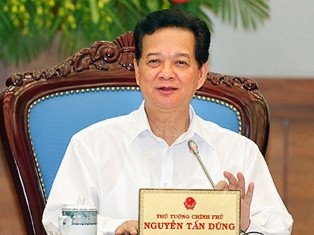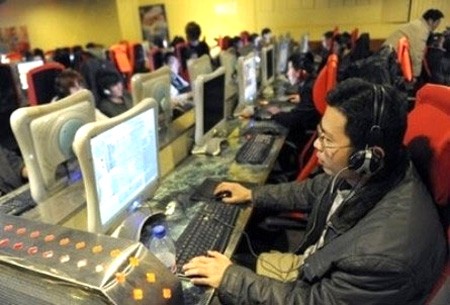(VOVworld) - The Ho Chi Minh City People’s Court recently jailed bloggers under article 88 of the Criminal Code, after security agencies found websites containing propaganda that distorted Vietnamese Party and State policies, and slandered and fabricated information about Vietnamese Party and State leaders. This information has posed serious threats to society demanding stricter control of information on the internet.
The bloggers stood trial in HCM City last week. Last month, the Government Office announced a Prime Minister directive asking relevant agencies to investigate and prosecute web pages and bloggers that slander Vietnamese leaders and incite others against the Vietnamese Party and State. These are calculated attempts by hostile forces to sabotage Vietnam, according to Minister of Information and Communication Nguyen Bac Son. "Hostile forces have taken advantage of the Internet to propagate against and sabotage Vietnam on various fronts including politics, economics, and ideology. They never cease their attempts to undermine and split Vietnamese Party and State leaders, distort the national culture and history and slander the Party and State policies. They make corrupt use of our campaign on Party building to cause disputes within the Party, and undermine people’s trust in the Party, and the fine objectives of the Party’s resolution on Party building", said Mr. Son.

Prime Minister Nguyen Tan Dung asks for stricter control of the internet
|
After the Government Office announced the Prime Minister’s directive, some social websites and blogs stated that commenting on the internet exercises the people’s right of information and the tightening of internet control violates the rights of freedom of speech and press. Following the bloggers’ trials, some foreign websites also expressed concerns about the freedom of speech and human rights in Vietnam. In Vietnam, as in other countries, information posted on the internet must abide by regulations and principles of accuracy and objectivity. Information that slanders individuals or organizations, and fabricates or distorts the truth violates the law and violators must be held responsible under the law. The Prime Minister’s directive and trials of the bloggers are in full accordance with Vietnam’s constitution and laws. "The Ministry of Information and Communication has drafted changes to regulations on the management and use of information on the internet. In recent past, the ministry has put in place several measures to better manage and correct weaknesses in posting information on the internet. Punishments including administrative fines, and revocation of domains and licenses have been applied. Those who violate the law are handed over to the relevant agencies for criminal prosecution",said Minister Son.
In developed countries where freedom of speech and press are said to be best protected, governments have regulations to control information on the internet and many individuals and organizations that violate these regulations have been punished. The Italian police arrested 59-year-old blogger Roberto Mancini and fined him 16,900 USD for posting distorted information that slandered others. In France, Christophe Grebert was arrested for posting on the internet stories slandering the Mayor of Puteaux city. The Egyptian court imprisoned 22-year-old blogger Suleiman for three years for libeling Islam and the Egyptian President on the internet. In the US, it’s not rare to see bloggers sued and tried for publishing distorted stories. In July, Russian President Vladimir Putin signed a law on internet management, which bans websites that disseminate false information and penalizes slander on the internet by a fine or compulsory work. The maximum penalty is a five-million-ruble fine.
 |
Regulations controlling information on the internet are different in different countries, but follow common principles of restricting distortion, slander, the violation of the legitimate rights of individuals and organizations, and threats to security. The Vietnamese State’s regulations on information management on the internet in line with international laws protecting human rights including the international conventions on civil and political rights.